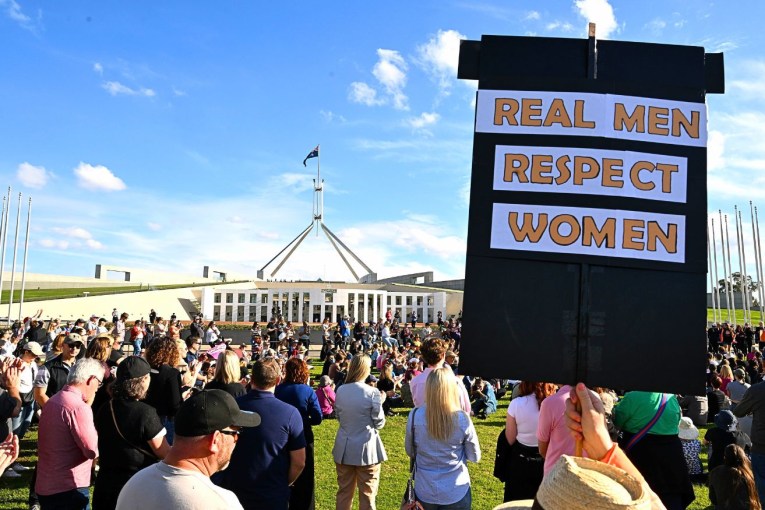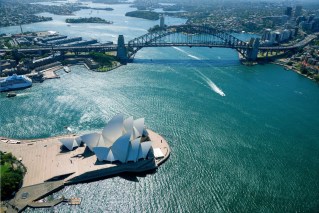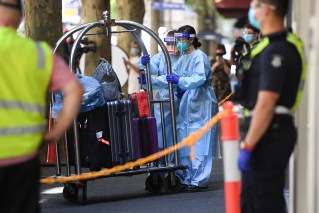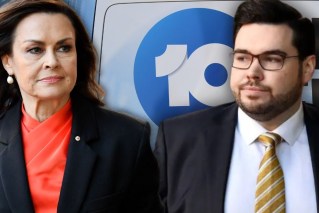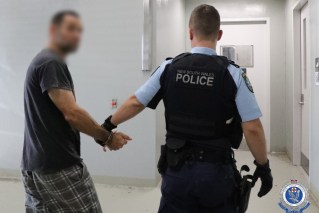Calm down kids: Red Bull no longer gives wings to British children under 16

The UK has banned the sale of energy drinks to people under 16. Now there is pressure for Australia to follow suit. Photo: Getty
Potentially lethal caffeine-rich energy drinks have been banned for sale to children under 16 in the UK, after years of campaigning from health advocates, parents and teachers.
Nutrition experts and health advocates have urged Australia to follow suit.
In Australia, energy drinks are allowed to have up to 320mg per litre of caffeine, the equivalent to four cups of coffee.
Research has shown that just one can of the drink can prompt potentially fatal cardiac arrest.
Despite small-letter labels on the drinks, warning the likes of Red Bulls and Monsters are “not recommended for children”, there has been a spike in children between the age of 10 and 18 giving themselves heart palpitations.
Dietitians Association of Australia spokeswoman Lauren McGuckin said young people lacked the understanding of how energy drinks worked to fully grasp how their bodies could be negatively affected.

Red Bull is one of the world’s most recognisable energy drinks, commonly appearing as major sponsors in sporting codes. Photo: Getty
Energy drinks get their charge from large doses of caffeine and sugar in combination with other ingredients, such as guarana, taurine, vitamins, minerals or herbal substances. A 500ml can contains 20 teaspoons of sugar and the same amount of caffeine as two cups of coffee.
In large doses, caffeine can cause anxiety, agitation, sleeplessness and heart problems.
“Young people don’t understand the effects of caffeine, how harmful it can be … I think it’s something that should be regulated for the younger population,” Mrs McGuckin told The New Daily.
A mixed history
In Australia, most of the anxiety around energy drinks is to do with mixing them with alcohol – a trend that has left a string of teenagers and young adults dead around the world.
In 2012, then Victorian health minister David Davis faced calls to ban alcoholic energy drinks – one brand described as a “blackout in a can” – following the death of a Melbourne schoolgirl.
Then VicHealth chief executive Jerril Rechter – who last month left the job – said a ban was the only option, and was calling on the state government to lead a national push against the drink.

Children between 10 and 18 years of age are presenting with behaviour issues and physical conditions, brought on by energy drink consumption. Photo: Getty
In 2017, researchers from the Royal Prince Alfred Hospital found young people with no known history of heart disease were at risk of a fatal cardiac arrest after just one energy drink.
Dr Jennifer Lacy-Nichols is a food systems tutor at the University of Melbourne, where she teaches and lectures on food and nutrition issues, corporate political strategies and food policies.
Dr Lacy-Nichols told The New Daily the likelihood of Australia following the UK’s example “is quite slim”.
However, she said: “One of the effects of proposing something somewhat radical like this is raising awareness of the issue and generating public debate.”
“I would anticipate that the beverage industry would respond to a ban on energy drink sales to children in the same way it has to other policies it perceives as threatening to its business interests: Lobby in opposition and launch a new voluntary program that ticks some of the boxes to minimise the pressure to regulate,” Dr Lacy-Nichols said.
